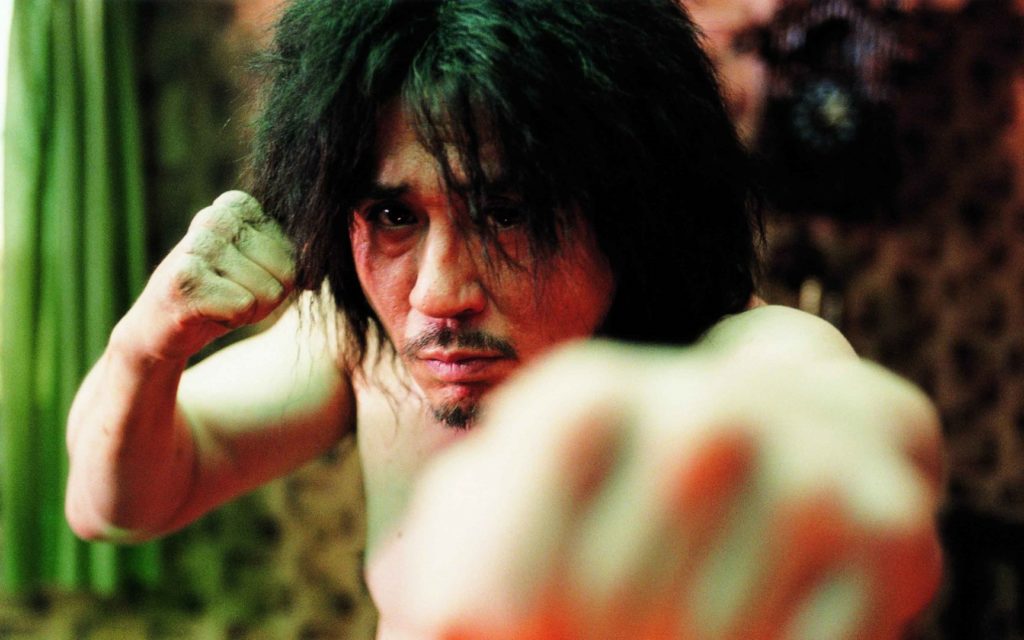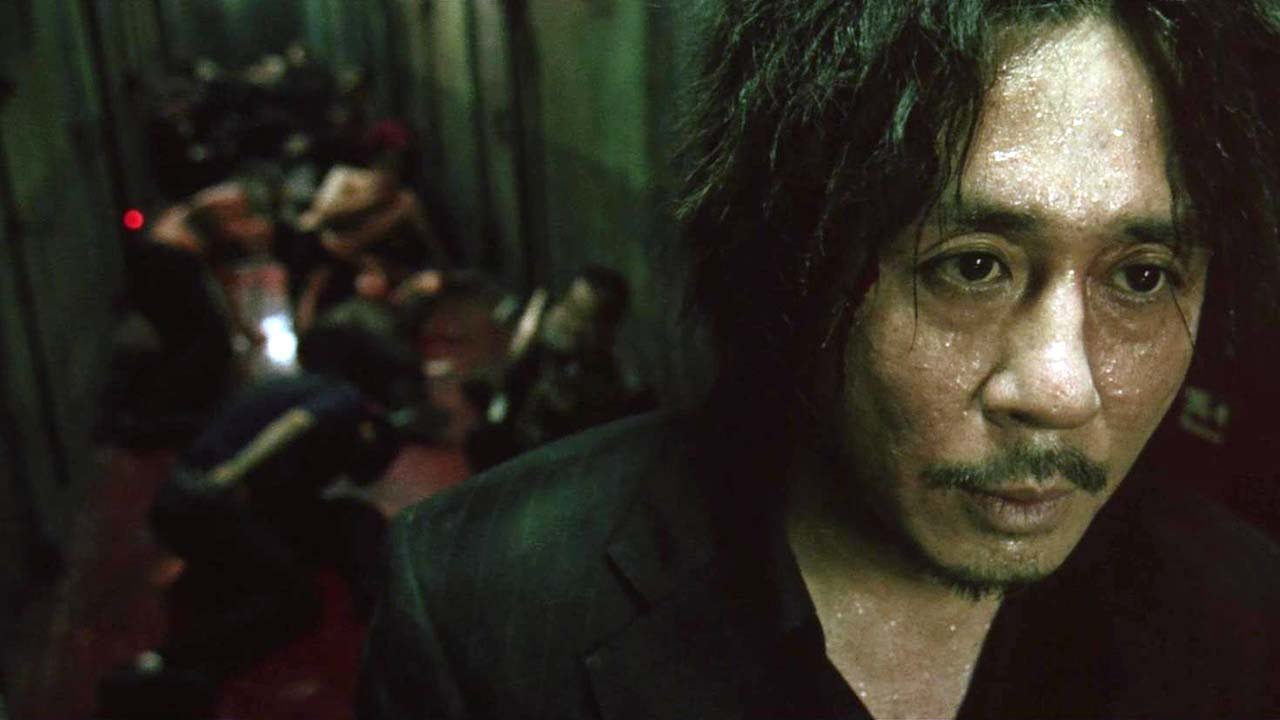Old Boy, a revered South Korean cult classic film, delves into the dark and somber realms of vengeance and its destructive consequences. Helmed by the brilliant actor Choi Min-sik, the movie follows the intriguing journey of Oh Dae-su, the protagonist, who finds himself mysteriously abducted one fateful night and trapped in a private prison for a mind-boggling 15 years. Secretive and devoid of human contact, his only solace becomes the tantalizing prospect of escape, leading him on a relentless quest for the truth.
Escape from Solitary Confinement
In the depths of his captivity, Oh Dae-su seizes an opportunity for freedom when he discovers an additional metal chopstick among his meals. Striving to chip away at the wall near his bed, he endeavors to forge an outlet for his escape. Day after day, with unwavering determination, he scratches away at the unforgiving surface, hoping to once again taste the sweetness of liberty. Miraculously, after 15 long years, he finds himself inexplicably released on the rooftop of a building, leaving him perplexed and hungry for answers.
Unraveling the Mystery
Driven by a relentless desire for retribution, Oh Dae-su embarks on a journey to uncover the identity of his captor. He begins his search at the very establishment that fed him the dumplings during his imprisonment, eventually befriending the skilled chef Mi-do. Through an online conversation with a stranger known as Evergreen, who intriguingly labels Oh Dae-su as “The Count of Monte Cristo,” he stumbles upon a profound connection to his ordeal. The stranger explicitly questions, “How’s life in a bigger prison, Mr. Oh Dae-su?” This revelation ignites a fire within Dae-su, propelling him to seek out relentless vengeance.

An Elusive and Sadistic Adversary
As Oh Dae-su delves deeper into the depths of his past, he unearths an ex-prison and acquires a seemingly crucial tape that ultimately leads to a dead end. Seeking solace in the company of his old friend No Joo-hwan, he discovers the true identity of his captor, Lee Woo-jin, played masterfully by Yoo Ji-tae. Woo-jin manipulates Dae-su’s emotions, revealing a malevolent game in which Dae-su must unravel the answers to his burning questions within five days.
Failure to do so means the death of Mi-do and any woman Dae-su holds dear. Despite his seething fury, Dae-su refrains from killing Woo-jin, understanding that his only hope lies in extracting the truth. However, his tormentor reveals a pacemaker implanted in his weakened heart and the power to end his own life, thwarting Dae-su’s attempts at pursuing justice.
The Illusion of Freedom
Unbeknownst to Oh Dae-su, his escape from captivity merely plunges him deeper into a web of manipulation. Lee Woo-jin becomes fixated on inflicting emotional pain and trauma upon Dae-su, utilizing hypnotic suggestions to control his actions and those of Mi-do. Despite finding love and solace within their illusory freedom, Dae-su and Mi-do remain under constant surveillance, subject to newer and more sadistic methods of mental and emotional torture. The captor even goes so far as to record their intimate moments and insidiously inject himself into their lives, further exacerbating their suffering.
A Gruesome Past Unveiled
Through arduous investigation guided by No Joo-hwan and Mi-do, Oh Dae-su discovers a profound connection to his persecutor, Lee Woo-jin. The revelation that they all attended the same high school and that Dae-su inadvertently witnessed a taboo relationship between Woo-jin and his sister unfolds the twisted origins of his torment. The shame and tragedy that follow, including the sister’s suicide and Woo-jin’s guilt-ridden quest for revenge, highlight the depths of Lee Woo-jin’s distorted psyche.
The Ultimate Act of Revenge
Lee Woo-jin’s vengeance knows no bounds. Waiting patiently for years, he orchestrates a plan to destroy Oh Dae-su’s life. On the day of his daughter’s third birthday, Dae-su is abducted, his wife brutally murdered to incriminate him. Unbeknownst to Dae-su, Woo-jin adopts and raises his daughter, Mi-do, in a twisted turn of events. As Mi-do reaches adulthood, she crosses paths with Oh Dae-su upon his release, and they unknowingly form a romantic bond. Lee Woo-jin subjects them both to a hypnotic spell, shaping their lives and manipulating their feelings. He cunningly engineers their relationship, hoping to drive them towards committing incest as a final act of degradation and despair.
Seeking Peace and Redemption
In the movie’s poignant epilogue, Oh Dae-su encounters Woo-jin’s hypnotist, beseeching her to erase his memory of the incestuous relationship. She complies, but with a haunting twist—the creation of two personas within Dae-su. One persona, “Oh Dae-su,” remains oblivious to the truth, while the other, aptly named “The Monster,” suffers from the agonizing burden of knowledge. As The Monster walks away, aging with each step, Dae-su wakes up in the snow, only to realize he has unknowingly taken those fateful steps. A bittersweet reunion with Mi-do follows, leaving audiences with an ambiguous ending, questioning the efficacy of the hypnosis and the true nature of their embrace.
In Conclusion
With its twisted narrative, Old Boy captivates and perplexes viewers, weaving a tale of revenge that delves deep into the human psyche. This South Korean masterpiece explores the devastating consequences of unbridled vengeance and manipulation, leaving audiences questioning the boundaries of justice and redemption. Prepare to be enthralled by Old Boy’s enigmatic plot, masterful performances, and haunting themes.

